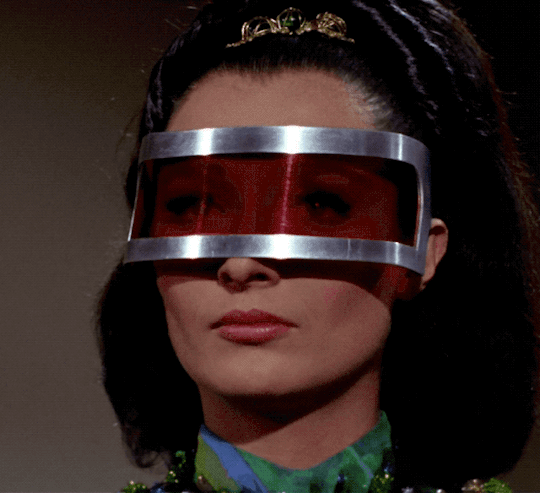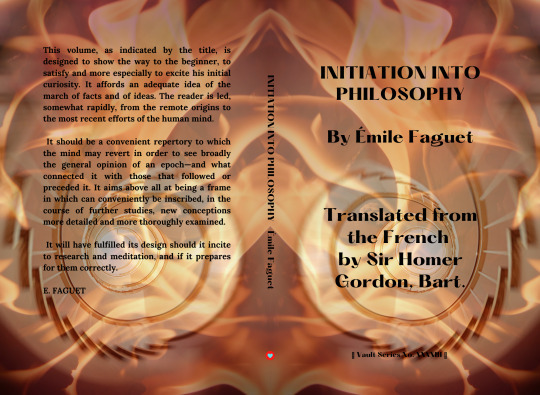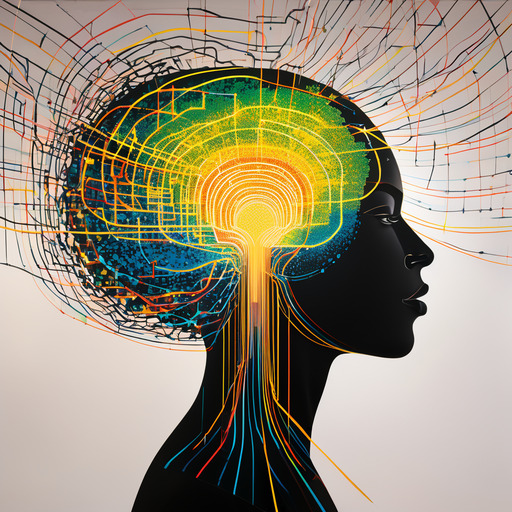#Intellectual curiosity
Explore tagged Tumblr posts
Text
intellectual intimacy is highly underrated in my opinion
#intimacy isn’t limited to physical touch#craving a mind i can’t posses#intellectual curiosity#daddy’s little girl#daddy's little princess#daddy's good girl#!cky daughter#just having thoughts
96 notes
·
View notes
Text
The Philosophy of Curiosity
The philosophy of curiosity explores the nature, origins, and implications of human curiosity, which drives individuals to seek knowledge, explore new experiences, and ask questions about the world around them. Curiosity has long been recognized as a fundamental aspect of human cognition and behavior, playing a central role in scientific inquiry, philosophical reflection, and everyday life. Here are some key aspects and theories within the philosophy of curiosity:
Epistemic Curiosity: Epistemic curiosity refers to the desire for knowledge and understanding, motivating individuals to seek information, explore new ideas, and engage in intellectual pursuits. Philosophers have debated the nature of epistemic curiosity, its origins in human cognition, and its role in shaping scientific progress and cultural development.
Aesthetic Curiosity: Aesthetic curiosity pertains to the exploration of beauty, art, and creativity, driving individuals to seek out new experiences, appreciate diverse forms of expression, and engage with works of literature, music, visual art, and other cultural artifacts. Aesthetic curiosity raises questions about the nature of artistic inspiration, cultural interpretation, and subjective experience.
Existential Curiosity: Existential curiosity concerns the exploration of existential questions about the nature of existence, meaning, and purpose, motivating individuals to reflect on their own lives, values, and beliefs. Existential curiosity encompasses inquiries into topics such as the nature of consciousness, the search for transcendence, and the quest for personal fulfillment.
Philosophical Curiosity: Philosophical curiosity involves the pursuit of philosophical inquiry, critical thinking, and self-reflection, prompting individuals to question assumptions, challenge conventional wisdom, and explore fundamental concepts such as truth, morality, justice, and reality. Philosophical curiosity underlies the practice of philosophy as a discipline and informs broader intellectual endeavors.
Ethical Curiosity: Ethical curiosity concerns the exploration of ethical questions and moral dilemmas, motivating individuals to consider the consequences of their actions, empathize with others, and strive for moral growth and development. Ethical curiosity raises questions about the nature of moral values, ethical principles, and the pursuit of the good life.
Cognitive Curiosity: Cognitive curiosity encompasses the exploration of cognitive processes, mental states, and psychological phenomena, driving individuals to understand how the mind works, how knowledge is acquired, and how beliefs are formed. Cognitive curiosity informs research in fields such as psychology, neuroscience, and cognitive science.
Cultural Curiosity: Cultural curiosity involves the exploration of diverse cultures, traditions, and worldviews, prompting individuals to learn about different societies, languages, and customs, and to appreciate the richness of human diversity. Cultural curiosity fosters intercultural understanding, global awareness, and cross-cultural communication.
Metacognitive Curiosity: Metacognitive curiosity pertains to the exploration of one's own cognitive processes and learning strategies, motivating individuals to reflect on their own thinking, monitor their own understanding, and adapt their learning strategies to achieve greater intellectual growth and self-improvement.
Overall, the philosophy of curiosity explores the multifaceted nature of human curiosity and its profound influence on knowledge, creativity, personal growth, and the human condition.
#philosophy#epistemology#knowledge#learning#chatgpt#education#psychology#Epistemic curiosity#Aesthetic curiosity#Existential curiosity#Philosophical curiosity#Ethical curiosity#Cognitive curiosity#Cultural curiosity#Metacognitive curiosity#Human cognition#Inquiry#Exploration#Intellectual curiosity#Human experience#Curiosity and creativity#Curiosity and learning
65 notes
·
View notes
Text
“Science is a way of thinking much more than it is a body of knowledge.” ― Carl Sagan
#carl sagan#humanity#humans#reading#atypicalreads#quotes#science#critical thinking#philosophy#knowledge#intellectual curiosity#scientific method#learning#inquiry#discovery#wisdom#education#exploration#rationality#open-mindedness#reasoning#problem-solving#understanding#intellectual pursuit#science mindset#thought process#truth-seeking
6 notes
·
View notes
Text
Mars' Aloof Intellect

Note: This post might not give you anything new if you're at an intermediate or advanced level of being on the astrology wildride :p
~~~~~~~~~~~~~~~~~~~~~~~~~~~~~~~~~~~~~~~~~~~~~~~~~~~~~~~~~~~~~~~
Air Mars, on a good day: "My intellect is my power and not my curse."
Why? - The air element pertains to the intellectual and mental realms, aligning with the tarot suit of Swords for tarot enthusiasts. This energy is objective and often plays the role of an observer, akin to how our minds function. There is a tendency to maintain a certain distance, which might be perceived as detachment. I mentioned "curse" because this intellectual energy can sometimes feel like a curse when you find yourself alien to those who don't operate as efficiently from the mind. The curse lies in not being seen, understood, appreciated, and having to conform to rules you'd rather not. Think ~Aquarian energy~
It also involves the stark alienation from others and the resulting projections; your intelligence might be interpreted as being aloof, or even intimidating, as is sometimes the case with ~Libra energy~
And, of course, we are familiar with the criticism ~Gemini energy~ faces due to its constant need for mental stimulation to even exist, which can manifest in both healthy and not-so-healthy ways.
What are your thoughts or experiences related to air Mars energy? How do you perceive intellect as a source of power in your life? Let's start a conversation~

#Astrology#Air Mars#Intellectual Energy#Astrology Enthusiast#Zodiac Insights#Mars Signs#Astrology Community#Intellectual Curiosity#Mindful Astrology#Astrology Readings#Mars#Air Element#Zodiac#Mental Realms
21 notes
·
View notes
Text
If any one attitude united the astrologers of the seventeenth century it was an overwhelming intellectual curiosity - a desire to reduce things to order, and a conviction that they had the tools with which to do so.
Keith Thomas, Religion and the Decline of Magic
#quote#quotation#Keith Thomas#Religion and the Decline of Magic#astrology#astrologers#intellectual curiosity#order#tools#sadly advances in astronomy did it for astrology as well as for the geocentric model
2 notes
·
View notes
Text

A Mind in Motion: The Evolution of Paul Dirac’s Thought and Legacy
Paul Dirac's life and work embody the intricate dance between intellectual curiosity, philosophical evolution, and the relentless pursuit of scientific knowledge. His strict upbringing, characterized by a unique linguistic regime imposed by his father, played a pivotal role in shaping his intellectual trajectory. This environment, where French was spoken with his father and English with his mother, likely honed Dirac's ability to navigate complex systems and think abstractly. Initially inclined towards engineering, a path influenced by his family's vocational leanings, his innate mathematical aptitude eventually led him to the realm of theoretical physics.
The interplay between environmental influences and innate talent in the development of exceptional minds is a fascinating aspect of Dirac's story. The structured and disciplined environment may have fostered Dirac's meticulous approach to problem-solving, a trait that would later serve him well in the precise world of theoretical physics. His natural affinity for mathematics, evident from an early age, underscores the role of inherent ability in shaping one's academic and professional pursuits. Investigating similarly raised individuals could provide valuable insights into the cultivation of genius, elucidating whether specific aspects of their upbringing, such as bilingualism and strict discipline, were instrumental in their success.
Dirac's transformative shift from an anti-religious, anti-philosophical stance to embracing mathematical beauty as a guiding principle in physics is a defining aspect of his legacy. This philosophical evolution led to the creation of the Dirac equation, a seminal work that seamlessly integrated quantum theory with special relativity. The beauty and elegance of this equation not only reflected Dirac's newfound appreciation for aesthetic considerations in physics but also underscored the efficacy of such an approach in driving scientific breakthroughs. Historical precedents, such as Johannes Kepler's laws of planetary motion, derived from a desire to create a harmonious, beautiful system, preceded empirical validation, illustrating the power of aesthetic considerations in anticipating scientific truths.
The pursuit of string theory, driven by its mathematical elegance despite lacking direct empirical evidence, further solidifies Dirac's enduring influence on the philosophical underpinnings of modern physics. This interplay between beauty and truth in physics suggests that aesthetic considerations can serve as a heuristic for theory development, particularly in areas where empirical data is scarce or inconclusive. Moreover, the significant role of geometric thinking in Dirac's contributions, particularly in the development of the Dirac equation, underscores the importance of geometry in driving innovation in physics, from Euclid's influence on Isaac Newton's understanding of space to Albert Einstein's reliance on Riemannian geometry for general relativity.
The disparity between Dirac's enigmatic public persona and his nuanced personal life serves as a poignant reminder of the challenges inherent in science communication. The public's perception of scientists is often reduced to caricatures or stereotypes, neglecting the rich tapestry of their personal experiences and motivations. Presenting scientists in a more holistic light could enhance public engagement with science, fostering empathy and understanding for the human endeavor behind scientific discoveries. Exploring Dirac's personal struggles, including his complicated family relationships and his later-life introspections, humanizes the figure of Dirac, offering a compelling narrative for science outreach and education initiatives.
Dirac's later years, marked by introspection and a critical reevaluation of his work, including Quantum Field Theory, exemplify the self-reflexive nature of scientific advancement. Despite his personal reservations, his legacy remains resolute, with ongoing research drawing inspiration from his pioneering work. The continued pursuit of theories guided by the principle of mathematical beauty stands as a testament to Dirac's profound and lasting influence on the trajectory of modern physics. His work has also influenced fields beyond physics, such as mathematics and philosophy, underscoring the far-reaching implications of his ideas.
Graham Farmelo: Paul Dirac and the religion of mathematical beauty (The Royal Society, London, March 2011)
youtube
Wednesday, November 13, 2024
#theoretical physics#mathematical beauty#scientific legacy#genius studies#physics philosophy#biography#science history#quantum mechanics#relativity#string theory#scientific innovation#intellectual curiosity#philosophical evolution#talk#presentation#ai assisted writing#machine art#Youtube
3 notes
·
View notes
Text
"Embarking on Enlightenment: A Journey through 'Initiation into Philosophy' by Émile Faguet"

Émile Faguet's "Initiation into Philosophy" serves as a captivating portal into the world of profound ideas and intellectual exploration. This literary gem not only educates but also enthralls, making the initiation into philosophy a thrilling adventure.
Faguet, with eloquence and insight, navigates the intricate landscapes of philosophical thought, presenting complex concepts in a manner accessible to both novices and seasoned philosophers. The book invites readers to ponder the fundamental questions that have shaped human understanding for centuries, sparking a delightful intellectual curiosity.
One of the book's strengths lies in its ability to demystify philosophy, transforming it from an abstract discipline into a vibrant and relevant exploration of life's most profound inquiries. Faguet's narrative style is both engaging and thought-provoking, creating a harmonious balance between scholarly depth and reader-friendly accessibility.
As readers traverse the pages, they encounter a rich tapestry of philosophical traditions, from ancient wisdom to modern theories, each contributing to the mosaic of human thought. Faguet masterfully weaves together key philosophical tenets, offering readers a panoramic view of the discipline's evolution while highlighting its enduring relevance to contemporary life.
The book's thematic organization allows for a seamless journey through the realms of metaphysics, ethics, and epistemology, providing readers with a comprehensive understanding of philosophy's multifaceted nature. Faguet's insights into the works of notable philosophers add a layer of richness, transforming the book into a guide through the intellectual lineage of great thinkers.
"Initiation into Philosophy" is not merely a book; it is an odyssey that beckons readers to embrace the joy of intellectual discovery. Faguet's prose invites reflection, prompting readers to question, contemplate, and savor the intricacies of the philosophical landscape.
In conclusion, Faguet's "Initiation into Philosophy" is an intellectual feast that transcends the boundaries of time. With a captivating blend of erudition and accessibility, the book stands as an enduring testament to the timeless allure of philosophical inquiry, making it a must-read for anyone curious about the profound mysteries of existence.
Émile Faguet's "Initiation into Philosophy" is available in Amazon in paperback 12.99$ and hardcover 20.99$ editions.
Number of pages: 191
Language: English
Rating: 8/10
Link of the book!
Review By: King's Cat
#Philosophy#Émile Faguet#Intellectual Exploration#Philosophical Inquiry#Metaphysics#Ethics#Epistemology#Intellectual Curiosity#Great Thinkers#Human Understanding#Ancient Wisdom#Modern Theories#Thought-Provoking#Scholarly Depth#Thematic Organization#Philosophical Traditions#Existential Questions#Timeless Relevance#Profound Ideas#Intellectual Discovery#Book Review#Contemporary Life#Exploration of Life's Questions#Narrative Style#Intellectual Journey#Erudition#Reflection#Metaphysical Inquiry#Ethics Exploration#Intellectual Odyssey
4 notes
·
View notes
Text
JD Vance, the vice president of the United States, has proclaimed: “The professors are the enemy”. He did not proclaim this over dinner or to his closest confidant but in the public forum. He proclaims this loud and proud at a national convention.
This action is one that supports censorship. One that applauds and calls for anti intellectualism to rise. Anti intellectualism in nature prevents people from exercising free speech and condemns critique. As Richard Hofstadter stated: “Intellect is always on the move against something: some oppression, fraud, illusion, dogma, or interest is constantly falling under the scrutiny of the intellectual class and becoming the object of exposure,indignation, or ridicule.” Critical thinking and analysis is inherent to intellect.
Thus, the current Republican regime is in direct opposition to progress it is in direct opposition to freedom of press and freedom of speech. You do not need to look very far to find many examples of this thus far. Overall, it becomes glaringly obvious how the current Republican president and accomplice aim to control the public narrative. They are pushing for an America in which you cannot question their authority. Once you question their authority and choices you become their enemy. And what better way to exercise this idea than to use it as an opportunity to silence the voices of any non-American individual. American history shows a record of nativist ideology and fear of foreign influences and this prejudice is a driving force in the recent actions of this administration.
0 notes
Text
“Books, purchasable at low cost, permit us to interrogate the past with high accuracy; to tap the wisdom of our species; to understand the point of view of others, and not just those in power; to contemplate--with the best teachers--the insights, painfully extracted from Nature, of the greatest minds that ever were, drawn from the entire planet and from all of our history. They allow people long dead to talk inside our heads. Books can accompany us everywhere. Books are patient where we are slow to understand, allow us to go over the hard parts as many times as we wish, and are never critical of our lapses. Books are key to understanding the world and participating in a democratic society.” ― Carl Sagan, The Demon-Haunted World: Science as a Candle in the Dark
#carl sagan#the demon-haunted world#science as a candle in the dark#humanity#humans#reading#atypicalreads#quotes#books#knowledge#wisdom#democracy#critical thinking#education#philosophy#intellectual growth#science#history#nature#human progress#learning#perspective#intellectual curiosity#exploration#self-improvement#communication#free thought
5 notes
·
View notes
Text
What Happens When People Who Don’t Like to Think Are Asked to Start Thinking?
Brain or Pattern? It’s a curious thing to observe: when you invite someone to step outside their mental routine and engage with an unfamiliar idea, the reaction is often far from what you might expect. Instead of curiosity, you’re more likely to encounter resistance. There’s a palpable discomfort in being nudged toward deeper thought, as if thinking itself is a foreign landscape some would…

View On WordPress
#breaking routines#challenging assumptions#critical thinking#engaging the mind#exploring ideas#intellectual curiosity#Introspection#mental exploration#mental habits#Personal growth#power of questions#resistance to change#thinking#thought-provoking#thoughtful reflection
0 notes
Text
Sacred Texts: Wisdom from Around the World
Sacred texts, wisdom from around the world, Bible, Quran, Bhagavad Gita, Torah, ancient manuscripts, spiritual guidance
Embracing the Power of Rituals in Spiritual Practice Sacred Texts: Wisdom from Around the World Welcome back to ‘Sunday Musings.’ Today, I embark on an explorative journey into the profound and diverse world of sacred texts from various cultures and religions. As I continue my personal path of discovery and understanding, I am intrigued by the wisdom these ancient writings hold and how they…

View On WordPress
#ancient scriptures#community connection#diverse cultures#global wisdom#intellectual curiosity#philosophical exploration#religious texts#sacred texts#spiritual diversity#spiritual teachings#Sunday Musings#Sunday Musings Series
0 notes
Text
Maybe it isn't pretentious. Maybe we have been socialized to think that reading and intellectual curiosity are something we should look down on. But maybe that is also only a US opinion.
I wa teaching in LA one time and was invited to the house of one of the other teachers. She was Armenian, and had come to the states recently enough that her teenagers spoke Armenian, and Russian and English. At least.
We had a wonderful lively discussion about politics and art and history. And during this conversation her sixteen year old son turned to me and told me that Shakespeare's sonnets are better in Russian than English.
I was delighted. Here is a person who not only speaks more languages fluently than I do, he reads sonnets in all of them. And has opinions about which language has more depth and meaning. And he is sixteen. Show me an American kid who can do that. Or rather, show me an American kid who can do that and is not shy about it. Or afraid of being teased for his knowledge.
Education and intellectual curiosity belong to all of us. We should stop letting our culture bully that delight in the world out of us.
Let people love knowledge again.
i wish it was more common to memorize and recite poetry. i wish it wasn’t pretentious. i think it’d be nice for most ppl to have a favorite poem they know off the top of their head and even normal to know a few
19K notes
·
View notes
Text

#psychic#gemini zodiac sign#zodiac#dual nature#intellectual curiosity#communication skills#adaptability#relationship compatibility#career versatility#health and wellness#gemini children#famous geminis#astrological significance
0 notes
Text
D&D sparked an intellectual curiosity to learn more about the real world.
#DND#D&D#Dungeons & Dragons#Dungeon Master#TTRPG#Tabletop#Roleplaying Game#Intellectual Curiosity#Learning
0 notes
Text
Unlocking the Mind's Full Potential
A Journey Beyond the OrdinaryIn a world where our thoughts often run on autopilot, dictated by routine and societal norms, the true potential of the human mind remains largely untapped. It’s akin to a vast, unexplored landscape, brimming with possibilities that transcend the mundane. But how do we navigate this inner wilderness and fully express the capabilities of our minds?The first step is…

View On WordPress
#Cognitive Development#creativity#Curiosity#Human Potential#innovation#Intellectual Curiosity#mental exploration#mindfulness#Personal Growth#Thought Processes
1 note
·
View note
Text
David Coon: An Appreciation
The end of each year is a time for reflection. We often look back on the past year and try to summarize our milestones. Sometimes we set New Year’s resolutions with the best of intentions. At the moment I’m thinking about someone who won’t be part of the new year. That is the way of things, perhaps the hardest part of being human, knowing almost as soon as cognition forms that there are bookends…

View On WordPress
#awe and honor#‘Iolani School#Christmas card#David Coon#healing our world#intellectual curiosity#life&039;s worjk#man of the cloth#Mazel Tov#New Testament#new year’s resolutions#Old Testament#One Team#place of learning#planting seeds#sage on the stage#time for reflection#Vietnam War
0 notes